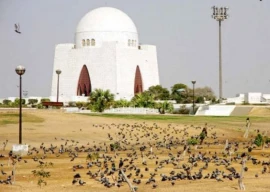
The two-day conference on “Islam and State: Practice and Perceptions in Pakistan and the Contemporary Muslim World” opened at the International Islamic University Islamabad (IIUI) and was attended by local and foreign scholars.
In his inaugural speech, the chief guest, Federal Minister for Information Technology and Education Sardar Aseff Ahmad Ali, dwelt on the controversial blasphemy laws which seems to have polarised Pakistani society. He said a new Islam was being preached in Pakistan these days which justified suicide attacks and the killing of innocents. He considered it tragic that “religious parties were justifying murder and glorifying the murderer.” He emphasised the need to resolve the debate about literal or contextual interpretations of Quran in order to revive the institutions of Ijma and Ijtihad, as advocated by Allama Iqbal.
Prof Fateh Muhammad Malik, Rector of IIUI, was of the opinion that the main task that lay before the state in Pakistan was to liberate the nation from subservience to the US. He advocated Iqbal’s and Jinnah’s interpretation of a “liberal and progressive Islam” that upheld the ideals of human equality, social justice and democracy.
IIUI President Dr Mumtaz Ahmad said that it was Zulfikar Ali Bhutto and not General Zia who gave the initial impetus to politicise religion. The only difference between the two, according to him, was that Bhutto failed in using Islam to his benefit whereas Zia succeeded. He said religion, which was supposed to integrate the nation, had been unable to achieve that purpose. However, he was optimistic about the revival that currently seems to be underway.
Sharing his views on Islam and democracy, Dr Khalid Masud, former chairman of the Council of Islamic Ideology, discussed the concept of sovereignty in light of the views of Iqbal and Maulana Maududi.
Published in The Express Tribune, January 26th, 2011.
1731570357-0/elon-musk-(1)1731570357-0-405x300.webp)
-(1)1717678110-0/Kendrick-(1)-(1)1717678110-0-165x106.webp)



1732428532-0/BeFunk_§_]__-(43)1732428532-0.jpg)




1725254039-0/Untitled-design-(24)1725254039-0-270x192.webp)






COMMENTS (7)
Comments are moderated and generally will be posted if they are on-topic and not abusive.
For more information, please see our Comments FAQ